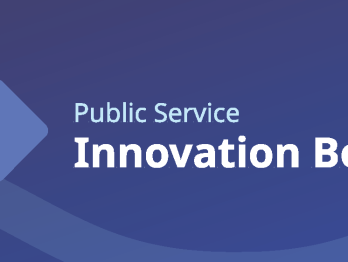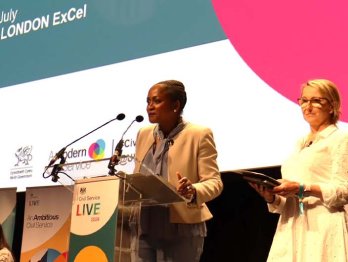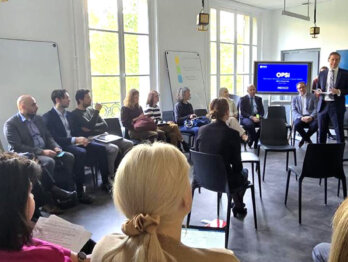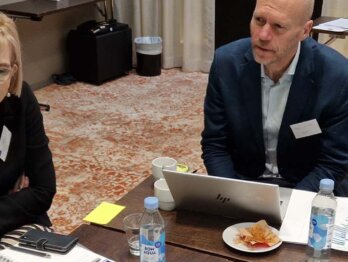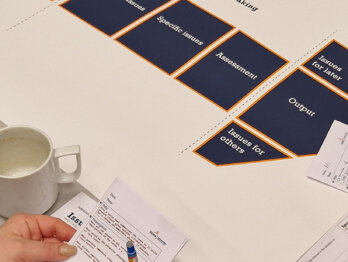Submit your cases: Putting people at the heart of social policy

UPDATE: There is still time for you to share your Social Policy Innovation Story! The deadline for the Call for Innovations in Stakeholder Engagement for Social Policy Development is now 12 April 2019.
With public trust in government deteriorating across many countries, the push to put people at the heart of policymaking is on the rise across the globe. And politicians are listening.
The OECD is calling on public servants and their partners in civil society and industry to share their experiences harnessing “people power” today to produce better social policies tomorrow. The aim is simple: to give people a greater say in shaping policies that matter to their lives.
The OECD’s 2018 Risks that Matter survey involving 22,000 people in 21 countries found that people’s biggest fears were about becoming ill or disabled and being worried about simply making ends meet. In addition, public trust in government has been eroding across the OECD when policy makers need it most as they have to respond to new challenges in a rapidly changing world of work, inequality, and escalating pension and healthcare costs. Only 43% of the respondents to the OECD said they trust their governments. Social policies have a role to play in supporting people facing life transitions, and are an important way that governments buttress the impacts of economic shifts.
In France, President Emmanuel Macron has launched a two-month nationwide debate in response to protest of people who want more say in the policies that affect them. In the UK, there are growing calls for a citizens’ assembly on Brexit. In Ireland, a citizens’ assembly paved the way for the country to overturn its ban on abortion in 2018. In Athens, the city developed an award-winning online public engagement tool called SinAthina to engage citizens to work collectively to problem solve and build a more inclusive and dynamic city.
The OECD has already gathered more than 200 examples of successful public sector innovation initiatives and wants to learn more about what works in public engagement and consultations on the full range of social policy issues.
The OECD invites you to share the results and success stories of engagement initiatives on social policy gathered as part of “The Call for Innovative Stakeholder Engagement Cases.” Selected case studies will be credited to you and will be published on the OPSI website. Your contribution will be used to build the OECD’s knowledge base and may be used in future publications in order to get the word out to people around the world interested in successful “people power” innovation. And finally, two case studies will be selected from among the submissions and the contributors will be invited to Paris to present their work at the OECD.
What was your organisation’s approach to Stakeholder Engagement? Who participated? What did you hear? How did it impact the policy-making process? How do you know engagement was successful? Was the stakeholder engagement cost effective? Did you have a feedback mechanism to respond to stakeholder concerns and queries?
You can help answer these questions by submitting a case study (instructions below). The deadline for submissions is 12 April 2019. Any questions? E-mail us at [email protected].
| How to Submit an Innovative Stakeholder Engagement Case: |
|---|
| 1. First, register to the OPSI Website to submit your case and become part of the OECD innovation community. 2. Make sure you fill in the submission criteria for acceptance: – The case is relevant to the open government principles of transparency, integrity, accountability and stakeholder participation. – It has a novel approach, either as a concept, or an upgrade based on a previous initiative. It is ongoing or has been implemented in practice, and it has shown results that can be verified. -The case study is written in plain English or French. -Every section of the case submission form is completed online. 3. Then, submit an Innovation through our platform by 12 April 2019. You can preview the submission questions and share them with your team using the .doc version available here. Please note that final submissions will need to be done through the digital platform. The OECD team and peer reviewers can suggest edits to the case description. The final selection of cases to be published is chosen by the OECD team. |
“Whether face-to-face or online, inclusive consultations give everyone a voice in shaping policies that shape our lives,” said Stefano Scarpetta, Director for Employment, Labour and Social Affairs at the OECD. “From citizens and community groups to companies and civil society organisations, public and stakeholder engagement opens up opportunities for everyone to contribute to creating better policies for better lives.”

